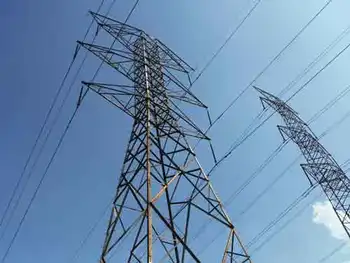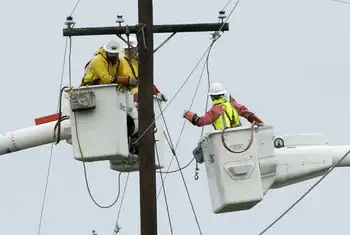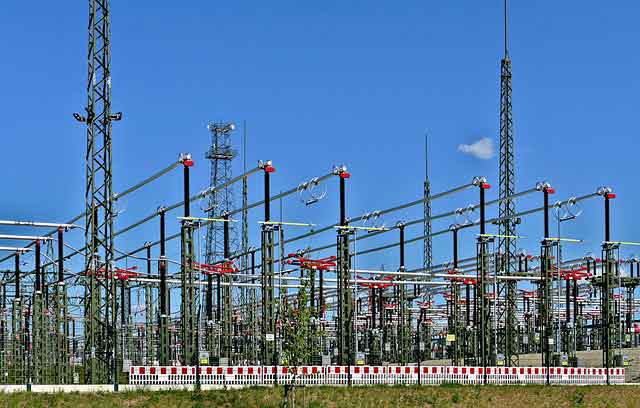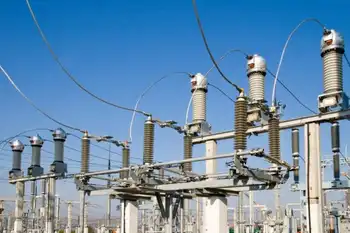GE Energy Wins Contracts for New Power Plants in Middle East
By Business Wire
High Voltage Maintenance Training Online
Our customized live online or in‑person group training can be delivered to your staff at your location.

- Live Online
- 12 hours Instructor-led
- Group Training Available
“To support the region’s dynamic growth, the Middle East urgently needs to increase its power and water capacity,” said Joseph Anis, GE Energy’s region executive for the Middle East. “With one of the industry’s broadest technology portfolios, and our global resources and experience, GE Energy is well-positioned to help the region meet these requirements.”
Under the first of the new contracts announced, GE will supply 20 Frame 9E gas turbines to Kharafi National of Kuwait for the Sabiya Power Station, which will add more than 2.5 gigawatts of power capacity for the State of Kuwait. The new power plant will be owned and operated by KuwaitÂ’s Ministry of Electricity & Water.
This will be an emergency power, fast-track project with an aggressive delivery schedule. The gas turbines will be manufactured at GEÂ’s facilities in Belfort, France, with shipments to the project site planned for October 2007 through June 2008. The commissioning phase for the new units is expected to begin in May 2008 and be completed in September 2008.
The Sabiya plant will operate in simple-cycle base load mode, initially using liquid fuel with plans to switch to natural gas when it becomes available in approximately three years.
In the second project, GE will supply gas and steam and power plant system services for a two-gigawatt power plant in Qatar – the largest such facility in the country and among the largest in the Middle East. Owned and operated by the Mesaieed Power Company Limited of Mesaieed, Qatar, the new plant is being built by Iberdrola Ingenieria y Construccion S.A.U. of Madrid, Spain.
GE will supply six Frame 9FA gas turbines, six 330H type generators and three D11 steam turbines, to be used for combined-cycle base load and part load operation; and two Frame 6B gas turbines for simple cycle black start duties.
The scope of GEÂ’s supply contract also includes additional plant equipment, technical advisory services, commissioning, performance tests and training. Under a separate contractual service agreement, GE will provide 12 years of maintenance services, encompassing two major inspection cycles.
QatarÂ’s demand for power has increased by an average of around nine percent from 2001 to 2005 while in 2006 it increased by more than 17 percent, according to the International Energy Agency.
The first Frame 9FA gas turbine-generator was prepared for shipment and left the GE factory in June of 2007. The first Frame 6B gas turbine-generator is expected to be shipped in July 2007 and the first steam turbine-generator in February of 2008.
The plant is expected to begin producing its first gigawatt of power in July of 2008, with the full power output of two gigawatts planned by April of 2010.
The Frame 9FA gas turbines are being manufactured at GEÂ’s facilities in Greenville, S.C., the Frame 6B gas turbines in Belfort, France, and the steam turbines in Schenectady, N.Y. Natural gas will be the primary fuel for the power plant, with distillate as the backup. Emissions will be limited to 9 ppm in combined-cycle operation.
The third project, also in the Mesaieed Industrial City of Qatar, is a turnkey project in which GE will lead a consortium with Doosan Heavy Industries and provide four 9FA gas turbines and two steam turbines to Qatalum for a new combined-cycle power plant that will generate power for the first aluminum smelter in Qatar. This will also be the first smelter in the entire region using F technology.
This project also includes training and a separate contractual service agreement covering maintenance services. DoosanÂ’s scope in the project includes the heat recovery steam generator, as well as the engineering, procurement and construction of the new power plant. The primary fuel source is natural gas and total plant output will be approximately 1.25 gigawatts.
The four 9FAs are planned to be shipped in late 2008 and testing is expected to start in September 2009. The start-up will be gradual according to the growth in the smelter power demand. Full commercial operation is planned for mid-2010.
Manufacturing of the gas turbines will be at GE EnergyÂ’s facility in Greenville, S.C., and the steam turbines will be built in Schenectady, N.Y.
“These new projects in Kuwait and Qatar reinforce GE’s already strong presence in the Middle East, as more than 50% of the installed thermal power in the region is based on GE technology,” said Steve Bolze, president, power generation for GE Energy. “For example, in recent months we have announced commitments totaling nearly $2 billion to supply gas turbines that will add 6.3 gigawatts of power in Saudi Arabia.”
With the latest series of orders in Kuwait and Qatar, GE Energy now has received orders and commitments totaling more than $3.5 billion for Middle East projects since December 2006.
In addition to the new orders, GE is further expanding its presence in the region by establishing new power generation projects offices in the Middle East to coordinate project management activities for the region.











